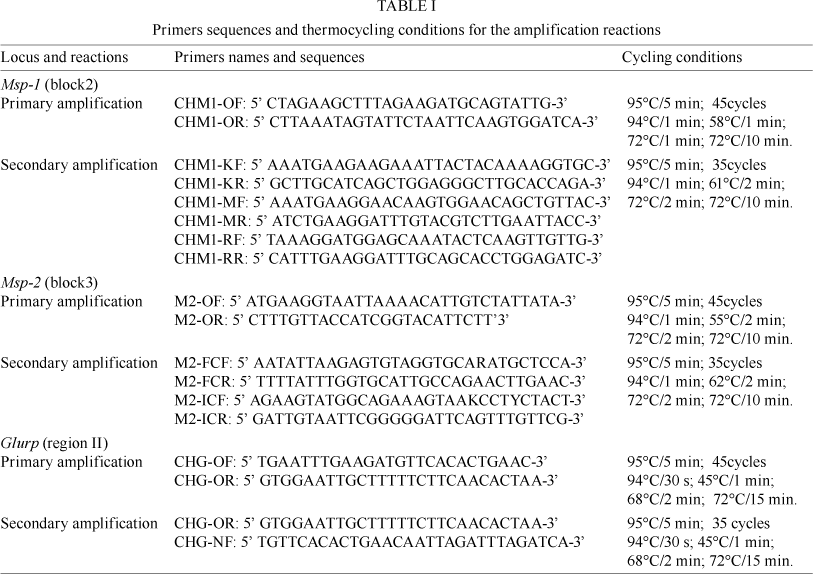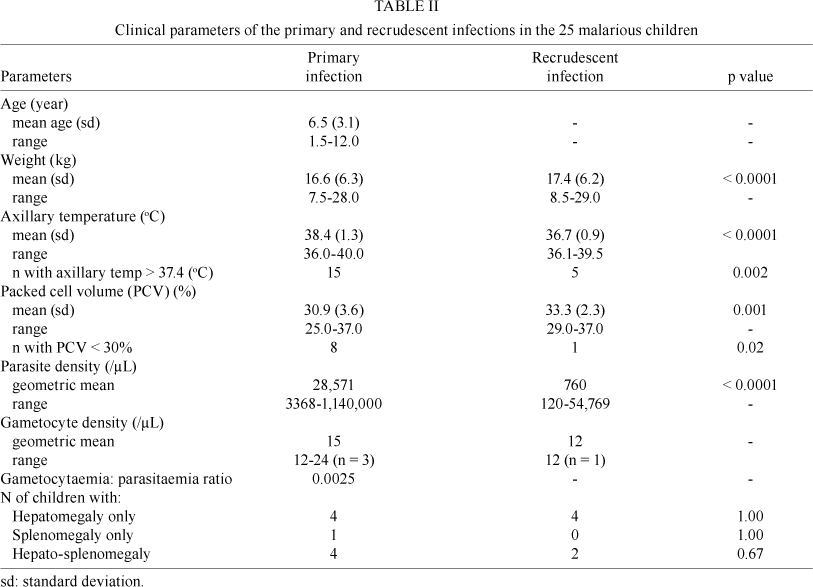Characteristics of primary and recrudescent Plasmodium falciparum infections were evaluated in 25 children who did not recover after amodiaquine (AQ) treatment. Recrudescence was detected by a thick blood smear and confirmed by polymerase chain reaction. Over half of recrudescent events occurred after 14 days of initiation of treatment and were associated with relatively low asexual parasitaemia. We examined the gametocyte sex ratio (GSR) in these children and in age and gender-matched controls that had AQ-sensitive (AQ-S) infections (n = 50). In both AQ-S and AQ-resistant (AQ-R) infections, the GSR was female-biased pre-treatment and became male-biased by the third day after treatment initiation. However, gametocyte males persisted after this period in children with AQ-R infections. AQ-recrudescent infections are relatively low (25 of 612.4%) in children from this endemic area.
amodiaquine; recrudescence; malaria; gametocyte sex ratio; children; Nigeria




